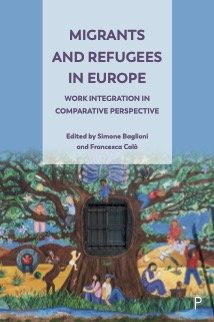By Nicolás Cabra-Ruiz, Sandra V. Rozo, María Micaela Sviatschi
How does forced displacement shape development in origin countries? This article examines the case of Venezuela, where nearly eight million people have been forcibly displaced. To do this, it compares municipalities with varying shares of foreign-born populations before and after international oil price shocks accelerated forced displacement between 2014 and 2019. The findings show that municipalities with larger foreign-born populations in 1990, which also exhibited greater out-migration from Venezuela after 2014, experienced lower economic development and higher inequality. The paper highlights a new mechanism through which forced displacement facilitates the perpetuation of autocratic rule and hinders development: by weakening political opposition and enabling the growth of organized crime and illicit income sources. Using novel election data, the article finds that areas affected by mass forced displacement experienced lower voter turnout and opposition support, limiting political and social reforms. These areas also witnessed growth in organized crime and foreign non-state drug and human trafficking, which diminished incentives for economic change.
Washington, DC: World Bank, Development Research Group, Development Economics , 2025. 102p.




